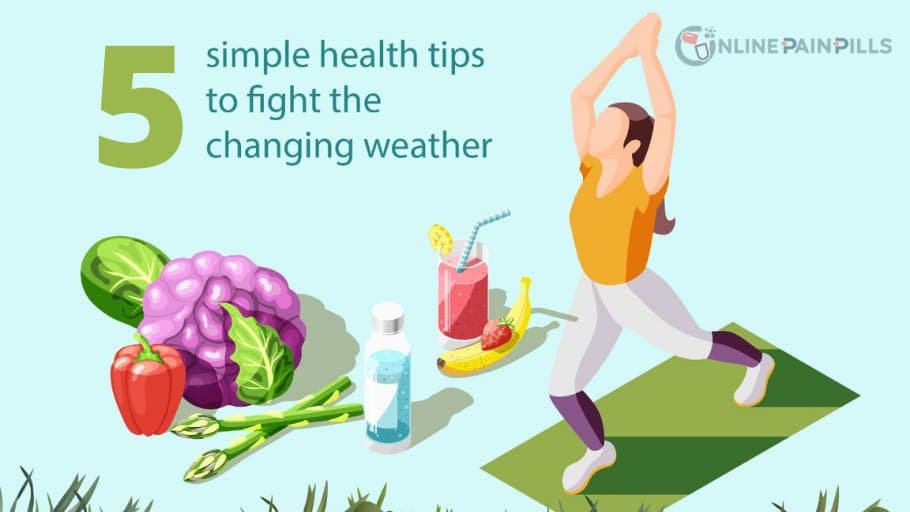Table of Contents
The weather seems to be changing every day. As you make the transit away from winter, the suddenly changing weather may result in sickness. Falling ill is common with sudden weather changes. However, there are some measures that you must take to ensure that you stay healthy and fit. This article shares the effects of weather change on your body and some tips for self-care during the winter months. Please read this blog to know more about the same.
Keep yourself hydrated.
No matter the present weather, it is essential to drink enough water and have vegetables and fruits with a high water content to stay hydrated. You could also have honey to soothe your throat. Water helps our bodies absorb nutrients by flushing out toxins from the body. Staying hydrated in the winters also helps boost your immune system and give your body the support it needs to fight off infection. Staying hydrated and drinking water can also help you stay warmer in the winter months.
Harsh winter weather wreaks havoc on your system, leaving your skin parched and body dehydrated. Even though your thirst response diminishes due to low temperature, staying well-hydrated in winter is as crucial as it is in the summer season.
Exercise often.
Getting fresh air and staying active works wonders for your health. Try and get a minimum of half an hour of exercise every day. Work out indoors if it is too cold or if you do not have enough time to hit the gym. Cold weather will make your muscles stiffer, making your warm-up and cool-down all the more essential. When you step out in the cold weather for your exercise, you would not forget to give your body a little extra minutes to cool down and warm up after and before your workout.
Vitamin D deficiencies are more common in the winter months when we spend more time indoors. Taking your exercise outside will give you a good dose of vitamin D to help keep your bones healthy and protect your body against diseases and other health conditions.
Just as your body needs to work harder in the cold to regulate its core temperature, your heart needs to work even more hard to pump blood throughout the body. If you have a healthy heart, working out outside will make your heart even stronger and build more endurance for more strenuous workouts in the future.
Dress right.
It is essential to change your wardrobe in accordance with the weather. As the weather changes, your body’s regulation metabolism is caught unawares, resulting in you being ill. So it is vital to either subtract or add layers depending on the weather. Layering is the key to staying warm, safe, and dry in adverse cold conditions. It is at times challenging to anticipate quick weather changes. Dressing in layers is an excellent way to get around this problem. Always keep a scarf, sweater, or coat with you to protect yourself from sudden weather.
Maintain good hygiene during the winter season.
Winter’s cold temperatures are usually blamed for the bouts of sickness that come with the season. A far bigger problem than the actual cold temperatures is the situations it creates. Cold temperatures force us into confined spaces. These confined spaces make it easier for our bodies to pick up germs and bacteria and contract infections. One of the best techniques for you to prevent being infected is good hygiene. Here are a handful of techniques you can implement excellent hygiene in the winter months and come on top against flu and colds.
Be defensive! Keep those germs and bacteria’s away by habituating smart hygiene practices, such as covering your sneezes or cough and washing your hands. Wash your body frequently, preferably every day. Always change into fresh clothes at least once or twice each day, especially your undergarments. Avoid touching your face often. A study revealed that people who often touch their noses and eyes are 40 percent more prone to respiratory infections. Observe yourself for a few days, and try to kick any habits that encourage infections. Do your best to prevent physical contact with ill people with prescription comparison.
Consider nasal cleansing. Also, carry a hand sanitizer. However, it should not be a replacement for washing your hands regularly. A hand sanitizer comes in handy when a sink is not nearby. Make sure to purchase a hand sanitizer with adequate alcohol to kill those pesky germs. Another winter hygiene tip is regular flossing, a surprise hygiene habit that may prevent illness. The same bacteria that could contribute to gum disease can also lead to inflammation throughout your body, which in turn harms your body’s immune system and makes it harder to fight off infections.
Get enough rest.
Sleeping for six to seven hours each day recharges your body and strengthens the immune system. If you can nap between activities throughout your day, take advantage. Sometimes naps are even more effective than a short night’s sleep.
Please follow these five simple tips to stay healthy during the winter season.

